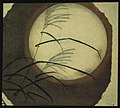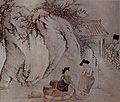User:Nsae Comp

This user-page is for collecting useful stuff for my self and other users.
Happy editing & collaborating!
Give ♡ for structured (& hyperlinked) content!
About me

Nsae Comp is a pseudonym for me a
}.Graduate in
Help for finding sources
Access
- Creative Commons media search engine
- Wikipedia Library, @♡♡♡
- Shadow library
- Internet Archive, @
- Wikisource, @
- Project Gutenberg, @
- Web of Science, Core Collection Master Journal List @
- PubMed, @
- arXiv, @
- WP:Free English newspaper sources
- Chinese Text Project, @
- Kulboy.com - german archive and museum for media related to (retro-) video games.
Google:
- Programable search
- Google Scholar, @
- Google Books, @
- Google Newspapers (archive), @
Reliability
Referencing tools
- To highlight the specific text at a linked source: add at the end of the source's URL "#:~:text=" and the specific text
- Help:Citation tools
- Citer - Converts a DOI, ISBN, OCLC, or URL into a citation and shortened footnote. It also can generate citations for many news websites.
- Refill - review & replace all bare URLs on a Wikipedia page with filled {{cite web}}
- BibGuru - An online full-fledged reference management solution.
- Zotero – software for finding and managing citations. Easily paste their citations into Wikipedia as citation templates.
- {{Failed verification}} - is used when an editor tried to verify the information in an article with its sources, but failed to do so.
Wikipedia issues
Outreach
- Wikimedia Outreach
- Wikimedia Campaigns
- WP:School and university projects
- WP:General disclaimer
- WP:Search
- WP:How do I use Wikipedia for research?
- WP:Research help/Scholars and experts
- Reliability of Wikipedia
- WP:Citing Wikipedia
- Special:Cite - generate citation for a Wikipedia page
- Wikiversity, @
- Wikibooks, @
- Wikipedia Zero - free access to Wikipedia project
- Most viewed articles:
Advocating
- WP:Welcoming committee
- WP:Encourage the newcomers
- WP:Avoid cryptic language
- WP:Ambassadors/Resources
- WP:Meetup
- WP:Wikimedia Österreich (Wikimedia Austria), @
Experts are welcome
Work in progress
Wikipedia as a mirror of the world
- Wikipedia#Coverage of topics and systemic bias
- Racial bias on Wikipedia
- Gender bias on Wikipedia
- Wikipedia is a mirror of the world’s gender biases (by Wikimedia Foundation)
- "Why Women Don't Edit Wikipedia.", nine reasons by former Wikimedia Foundation executive Sue Gardner.
- [1]

This user is a participant in WikiProject Women in Red
(Take care: WP:Biographies of living persons)
Other Wikiprojects
- WP:WikiProject Directory
- e.g. WP:WikiProject Colonialism
You can use the search box below to easily find a WikiProject that interests you!
Tasks
- {{Missing information}}
- {{Explain}}
- {{Expand section}}
- {{Empty section}}
- {{Lead too short}}
Draft (& Wikipedia data structure) - get started, edit and draft!

- Wikipedia data structure and development
- WP:Directories and indexes
- WP:Namespaces
- WP:New pages
- Article Wizard
- "Draft:"
Create a new draft
|
Don't delete, redirect articles
- Deletionism and inclusionism in Wikipedia
- Alternatives to deletion
- Redirection (use "#Redirect [[...")
Dispute resolution

- WP:Etiquette VS Rough tone (e.g. use of "ego") & Wikipedia inclusiveness
- WP:Assume good faith
- Constructive criticism
- Discuss and use {{outdent}} (also {{od}}) after some replies.
- WP:BRDWRONG - BOLD, revert, DISCUSS cycle (BRD) misuse
- WP:ROWN - Revert only when necessary
- WP:Five pillars
Community
Dependency & limits (as a mirror of the world), and how to lose
- WP:What Wikipedia is not
- WP:Tendentious editing
- WP:Tendentious editing#Righting great wrongs
- We follow: WP:NOTLEAD
- Wikipedia is a lagging indicator of notability: WP:SUSTAINED
- Wikipedia is a lagging indicator of notability:
- WP:MANDY
- Hitchens's razor
Structure, then content
- WP:Manual of Style/Accessibility
- WP:Manual of Style#Article titles, headings, and sections
- WP:Neutral point of view#Article structure
Other issues
- [2]

This user supports the Wikimedia Sustainability Initiative and Wikimedians for Sustainable Development
Toolbox
- WP:Search
- WP:Tools
- Find link - searches Wikipedia for text that fits the given article title and enables direct adding of an according wikilink.
- Wiki Replay - replays editing of a given article.
- XTools Blame - finds edits which added a given text.
- whoCOLOR - browser script which highlights original authors directly in the article.
- {{Oldid2}} - lets you link to a past article version.
- {{Template link}} - is a simple macro template used to display a template name as a link surrounded by braces, thus showing the template name as code rather than actually invoking it.
- Help:Cheatsheet

Images
- WP:Images linking to articles
- {{Multiple images}}
- {{Switcher}}
- {{external media}}
Maps
- {{Graph:Map}}
- {{Highlighted world map by country}}
- {{Global Heat Maps by Year}}
- {{Choropleth world map}}
- {{Graph:Map}}
Graphs
Writing
- Check readability of text: The Hemingway App. A readability score over >45 is fairly okay.[3]
- Redundancy exercises: removing fluff from your writing
- WP:Principle of Some Astonishment
Other useful templates, etc.
- WP:Hatnote
- {{More}}
- {{Distinguish}}
- {{About-distinguish2}}
- {{For2}}
- {{
- {{
- {{Redirect}}
- Help:Interwiki linking
- de:
- {{ill}} - Interlanguage link (e.g. { { ill|English article|lt=text|language code|language article } } )
- {{div col}}
- {{rp}} - reference page(s): 0
- {{Notelist}}
- {{efn}} - Footnote
- {{Primary source inline}} _[non-primary source needed]
- {{sn}} - Source needed
- {{cn}} - Citation needed
- {{Fact}}
- {{
- {{Dubious}}
- {{Update}}
- {{Update after}} - for a time-activated update note
- {{Update inline}}
- {{Update inline span}}
- {{replyto}}
- {{outdent}}
- {{od}}
- Use <nowiki></nowiki> for disabling the script of a text
- Use <sup></sup> for superscript text
- Use <sub></sub> for subordinated text
- Use <!-- text --> for an invisible note
- {{Excerpt}}
About how I got to Wikipedia (2005)
I have heard of Wikipedia several times before, first from my brother and then from my best friend. At this point I also want to mention my B2 First Teacher, who mentioned as first teacher Wikipedia and FM4 to me, wich were no new names for me, because I used them already daily, at that time, but I found it intresting that the teachers knew of such webpages and youth oriented radio stations.
FM4 is an english/german austrian youth orientated radio station, by the Austrian Broadcasting Corporation ORF, wich created the Prix Ars Electronica, wich awarded Wikipedia last year.
Since one or two months ago (about February 2005) I have been visiting Wikipedia quite often, and since April I have begun editing.
I try to add as much information as I can from school or other information sources to Wikipedia, when I use it.
Can't resist to put this unnecessary thing here
Countries (and states) I have been to (by accumulated time):
| Life dreams: |
Chungqing, ...; Shandong), |
| Lifetime: | |
| Decades: | |
| Years: | |
| Months: | |
| Monthish: | |
| Weeks: | |
| Week: | |
| Days: | |
| Hours: | |
| Minutes: | |
| Travelspecials: | |
| Traveloptions: |
34 Countries
Entertaining quotes from Wikipedia
"Early photos of Earth taken from space inspired a mild version of the overview effect in earthbound non-astronauts, and became prominent symbols of environmental concern."
Interests
Contact
- Uncontacted peoples#Definition
- First contact (anthropology)
- First contact (anthropology)#History
- Noble savage#Pre-history of the noble savage
- Ten Lost Tribes
Forms of government
Peoples
- People#Legal
- Nationality
- Citizen
Colonization
RIP
Wiki style databank, now!
References
- ^ [1]
- ^ User:EMsmile
- User:Femkemilene











